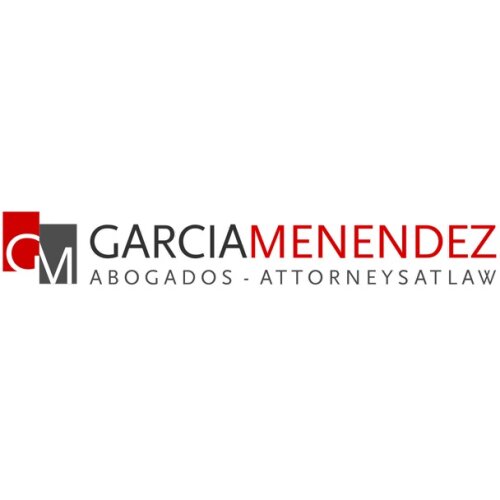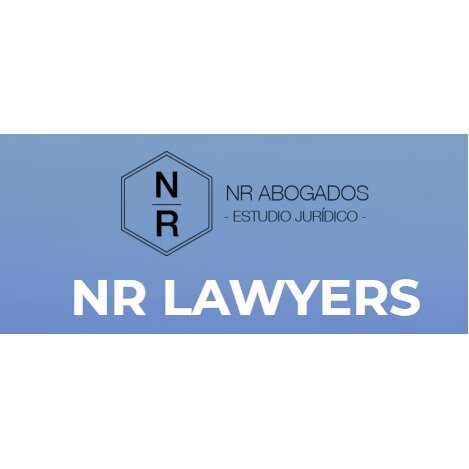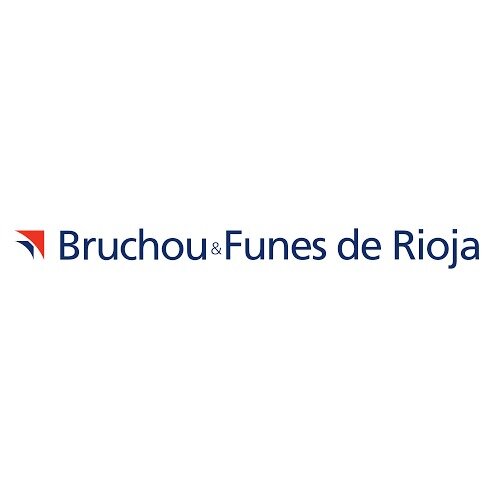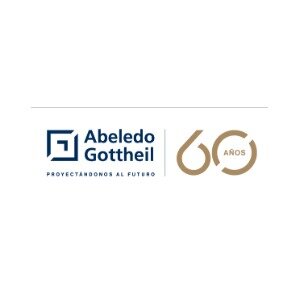Best Water Law Lawyers in Buenos Aires
Share your needs with us, get contacted by law firms.
Free. Takes 2 min.
List of the best lawyers in Buenos Aires, Argentina
About Water Law in Buenos Aires, Argentina
Water Law in Buenos Aires, Argentina governs the use, management, distribution, and protection of water resources within the city and its broader province. Since water is considered a public good and a fundamental human right under the Argentine Constitution and specific local regulations, Water Law addresses issues like access to potable water, ownership of watercourses, environmental protection, agricultural and industrial water use, water pollution controls, and dispute resolution concerning water rights. The legal framework balances the needs of individuals, communities, businesses, and governmental bodies, ensuring sustainable management of a vital natural resource.
Why You May Need a Lawyer
Individuals and organizations may need legal assistance with Water Law for a variety of reasons. Some typical situations include:
- Disputes over water rights, access, or allocation among landowners, neighbors, or businesses
- Conflicts involving the use or pollution of rivers, streams, or groundwater
- Obtaining permits for water extraction, wells, or water-related construction projects
- Navigating environmental regulations regarding wastewater, agricultural runoff, or industrial discharge
- Challenging government decisions that affect water access, pricing, or supply
- Pursuing compensation for damages caused by water contamination or flooding
- Understanding and complying with local ordinances, provincial laws, and federal legislation relating to water
- Participating in public hearings or consultations about water management policies
Legal expertise is often crucial because Water Law can be complex, involving overlapping jurisdictional, regulatory, and environmental considerations.
Local Laws Overview
Buenos Aires operates within a layered legal framework that covers both the Autonomous City and the Province of Buenos Aires. Key aspects include:
- Water is defined as a public good according to the Argentine Civil and Commercial Code and local provincial codes
- The Water Code of the Province of Buenos Aires (Código de Aguas de la Provincia de Buenos Aires, Law 12.257) regulates water resources, usage, and rights within provincial territory
- The City of Buenos Aires enacts its own regulations for municipal water infrastructure, service provision, and sanitation through agencies like AySA (Agua y Saneamientos Argentinos)
- Environmental Law overlaps significantly with Water Law, particularly regarding pollution, wetlands protection, and conservation of watercourses under the General Environmental Law (Law 25.675)
- Permits are generally required for significant water use, construction near bodies of water, and discharges into water systems
- Rights to access water for essential needs are protected, but large-scale or commercial uses may need special approval
- The regulation and monitoring of water quality fall under both local and federal authorities
Complying with all relevant statutes, permits, and environmental assessments is essential for individuals and companies operating in Buenos Aires.
Frequently Asked Questions
What is considered a public water resource in Buenos Aires?
Public water resources generally include rivers, streams, lakes, wetlands, and underground aquifers that are not privately owned. These are managed and regulated by public authorities for the collective good.
Can I drill a well on my property?
In most cases, you must obtain a permit from the relevant provincial or municipal authority before drilling a well, and usage may be subject to regulations that limit extraction volumes and protect groundwater quality.
What should I do if a neighbor is polluting a nearby watercourse?
You can report the situation to local environmental authorities or the department responsible for water resources. Legal action may be pursued if the pollution causes harm or violates water protection laws.
Is industrial water use regulated differently from residential use?
Yes, industrial water use requires specific permits, often involves stricter environmental controls, and is subject to pollution discharge limits and regular inspections.
Who is responsible for maintaining clean water supply in Buenos Aires?
In the City of Buenos Aires and much of the metropolitan area, AySA is the main provider and operator of water supply and sanitation services. Oversight is shared with local and provincial governments.
How are water disputes between users resolved?
Disputes may first be addressed through administrative channels or mediation, and if unresolved, can be escalated to provincial courts or specific agencies with jurisdiction over water resources.
Are there special laws for protecting wetlands and natural reserves?
Yes, both federal and local regulations protect ecologically sensitive areas, restricting construction, water extraction, and pollution to preserve biodiversity and water quality.
Do agricultural users need permits for irrigation?
Most agricultural irrigation requires permits, particularly when using water from public sources or installing significant infrastructure such as channels or pumps.
What are the penalties for illegal water use or pollution?
Penalties may include fines, orders for remediation, suspension of operations, and even criminal charges in severe cases of intentional contamination or unauthorized extraction.
How can I get access to public information about water quality and resources?
Governments and agencies such as AySA, OPDS (Organismo Provincial para el Desarrollo Sostenible), and ENOHSA (Ente Nacional de Obras Hídricas de Saneamiento) provide public reports and data. You can request information through their respective channels.
Additional Resources
Several organizations and governmental bodies can provide guidance, information, or intervention concerning Water Law in Buenos Aires:
- AySA (Agua y Saneamientos Argentinos) - for service, infrastructure, and supply issues in the City of Buenos Aires and surrounding areas
- OPDS (Organismo Provincial para el Desarrollo Sostenible) - provincial environmental authority overseeing water resources protection in Buenos Aires Province
- ENOHSA (Ente Nacional de Obras Hídricas de Saneamiento) - national body handling federal water infrastructure projects
- Defensoría del Pueblo de la Nación o de la Provincia - ombudsperson offices for public service complaints
- Municipalities and communal offices - for local complaints and permits
- Legal aid organizations and local bar associations - for legal representation and consultations
Next Steps
If you need legal assistance in Water Law in Buenos Aires, consider these steps:
- Clearly define your legal issue, gathering relevant documents, photographs, permits, or correspondence
- Contact a lawyer or law firm specializing in environmental or Water Law for an initial consultation
- Reach out to the appropriate public agency (such as AySA or OPDS) to seek information or register a complaint
- Check if you qualify for free or subsidized legal aid, particularly if the issue affects your basic access to water
- Ensure you meet all deadlines for challenging administrative decisions or defending your rights
- Follow your legal advisor's guidance for preparing claims, attending hearings, or mediating disputes
Timely action and professional advice are key to successfully resolving Water Law issues in Buenos Aires, Argentina.
Lawzana helps you find the best lawyers and law firms in Buenos Aires through a curated and pre-screened list of qualified legal professionals. Our platform offers rankings and detailed profiles of attorneys and law firms, allowing you to compare based on practice areas, including Water Law, experience, and client feedback.
Each profile includes a description of the firm's areas of practice, client reviews, team members and partners, year of establishment, spoken languages, office locations, contact information, social media presence, and any published articles or resources. Most firms on our platform speak English and are experienced in both local and international legal matters.
Get a quote from top-rated law firms in Buenos Aires, Argentina — quickly, securely, and without unnecessary hassle.
Disclaimer:
The information provided on this page is for general informational purposes only and does not constitute legal advice. While we strive to ensure the accuracy and relevance of the content, legal information may change over time, and interpretations of the law can vary. You should always consult with a qualified legal professional for advice specific to your situation.
We disclaim all liability for actions taken or not taken based on the content of this page. If you believe any information is incorrect or outdated, please contact us, and we will review and update it where appropriate.
















